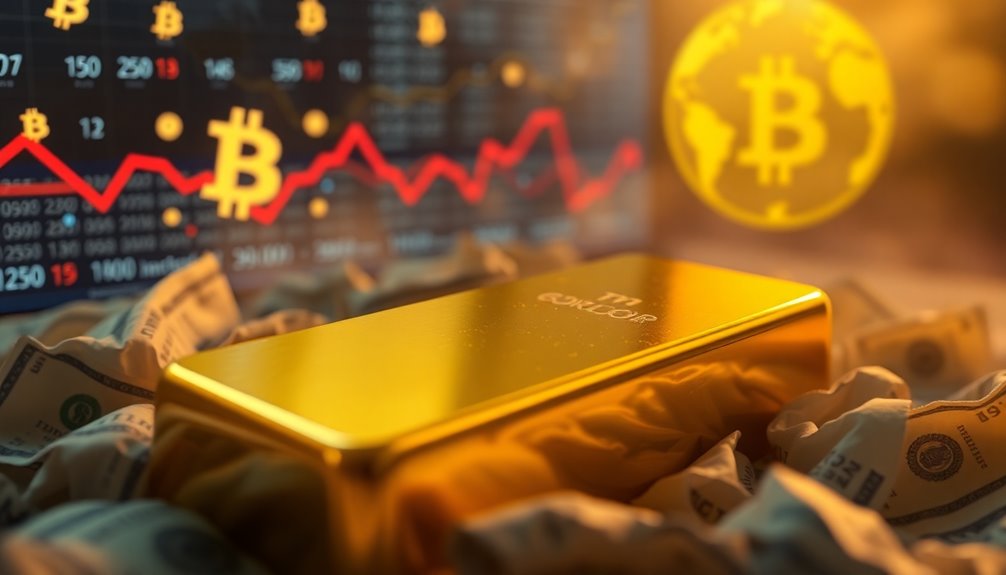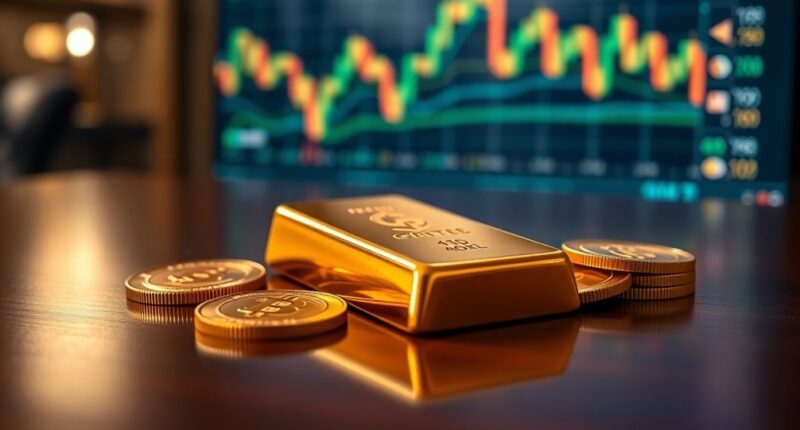As the trade war between the U.S. and China escalates, you might find yourself reconsidering your investment choices. Gold has solidified its status as a safe haven, outperforming more volatile options like Bitcoin. With economic instability and inflation risks looming, many investors are flocking to gold for protection. But what makes gold such a reliable choice in these uncertain times, and can it maintain this edge over digital currencies?

In times of uncertainty, gold shines as a reliable safe haven, especially amid the escalating Sino-U.S. trade war. You've likely noticed gold prices rising recently, reaching near an all-time high of $2,882.16 per ounce in earlier sessions. Current spot gold values hover around $2,867.79 per ounce, with U.S. gold futures slightly dipping to $2,887.10. This rise reflects a growing demand for gold as investors seek protection against volatile market conditions.
The trade war between the U.S. and China continues to drive these dynamics. With China imposing tariffs on U.S. goods, gold's appeal has surged. You can see this in the uptick in gold prices, particularly in India, where gold climbed 0.92% to ₹84,567, driven by safe-haven buying. The Lunar New Year holiday has kept trading activities muted in key Asian markets, but that hasn't dampened gold's traction as a preferred asset. Additionally, the demand for gold has been historically significant, as it has long served as a traditional hedge against economic instability.
Economic and geopolitical factors are at play, too. The Federal Reserve has indicated that uncertainties surrounding tariffs pose challenges for U.S. monetary policy, further boosting gold's attractiveness. You might also be aware that inflation risks are increasing due to these tariffs, affecting crucial interest rate decisions. As geopolitical tensions rise, particularly with U.S. President Donald Trump showing little urgency to resolve matters with China, investors are turning to gold as a refuge.
You may have noticed that gold isn't the only asset being eyed. However, unlike Bitcoin, which often rides on speculative waves, gold remains a traditional hedge against inflation and instability. Retail investors are increasingly favoring gold ETFs, digital gold, and physical bars amid higher prices, signaling a strong investment interest.
Interestingly, open interest in gold surged by nearly 4%, reaching 17,866 contracts, which indicates that many believe in gold's potential for further appreciation. While demand for gold jewelry, especially in India, may moderate in the coming years, the current climate boosts gold's status as a safe haven.
As the U.S. economy adds jobs and key economic data rolls in, the ongoing trade tensions overshadow these developments. A weaker dollar also helps make gold more affordable for international buyers, supporting its price. In this complex landscape, you can see why gold stands out as a secure investment, outpacing the performance of more volatile assets like Bitcoin.









